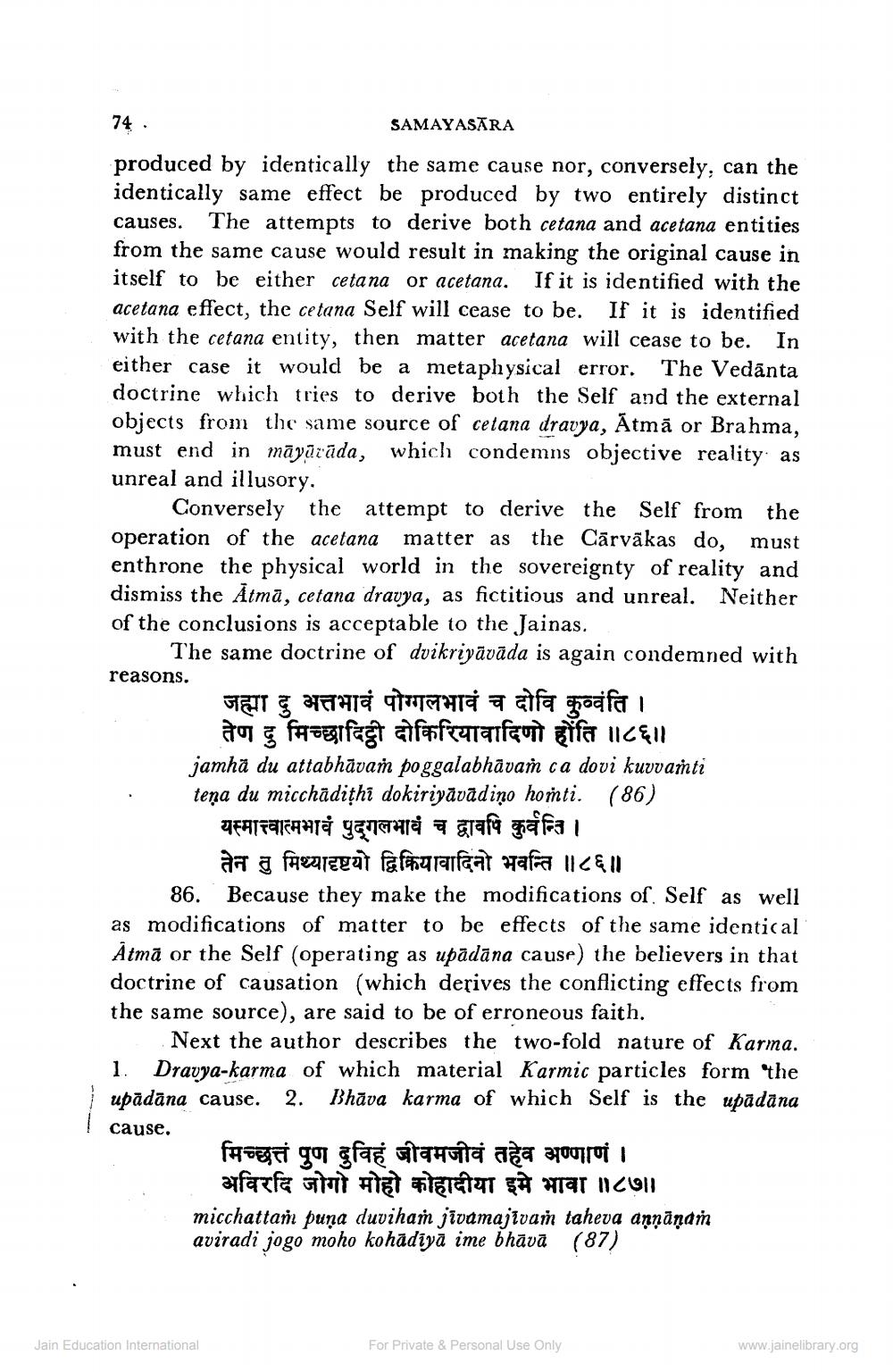________________
74
SAMAYASĀRA
produced by identically the same cause nor, conversely, can the identically same effect be produced by two entirely distinct causes. The attempts to derive both cetana and acetana entities from the same cause would result in making the original cause in itself to be either cetana or acetana. If it is identified with the acetana effect, the cetana Self will cease to be. If it is identified with the cetana entity, then matter acetana will cease to be. In either case it would be a metaphysical error. The Vedānta doctrine which tries to derive both the Self and the external objects from the same source of cetana dravya, Ātmā or Brahma, must end in māyārāda, which condemns objective reality as unreal and illusory,
Conversely the attempt to derive the Self from the operation of the acetana matter as the Cārvākas do, must enthrone the physical world in the sovereignty of reality and dismiss the Atmā, cetana dravya, as fictitious and unreal. Neither of the conclusions is acceptable to the Jainas.
The same doctrine of dvikriyāvāda is again condemned with reasons.
जह्मा दु अत्तभावं पोग्गलभावं च दोवि कुव्वंति ।
तेण दु मिच्छादिट्ठी दोकिरियावादिणो होति ॥८६॥ jamhā du attabhāvas poggalabhāvai ca dovi kuvvasti teņa du micchādițhi dokiriyāvādiņo homti. (86)
यस्मात्त्वात्मभावं पुद्गलभावं च द्वावपि कुर्वन्ति ।
तेन तु मिथ्यादृष्टयो द्विक्रियावादिनो भवन्ति ॥८६॥ 86. Because they make the modifications of Self as well as modifications of matter to be effects of the same identical Atmā or the Self (operating as upādāna cause) the believers in that doctrine of causation (which derives the conflicting effects from the same source), are said to be of erroneous faith.
Next the author describes the two-fold nature of Karma. 1. Dravya-karma of which material Karmic particles form the upādāna cause. 2. Bhāva karma of which Self is the upadāna cause.
मिच्छत्तं पुण दुविहं जीवमजीवं तहेव अण्णाणं ।
अविरदि जोगो मोहो कोहादीया इमे भावा ॥८७॥ micchattan puna duviham jivamajīvam taheva añņāņañ aviradi jogo moho kohādiyā ime bhāvā (87)
Jain Education International
For Private & Personal Use Only
www.jainelibrary.org




